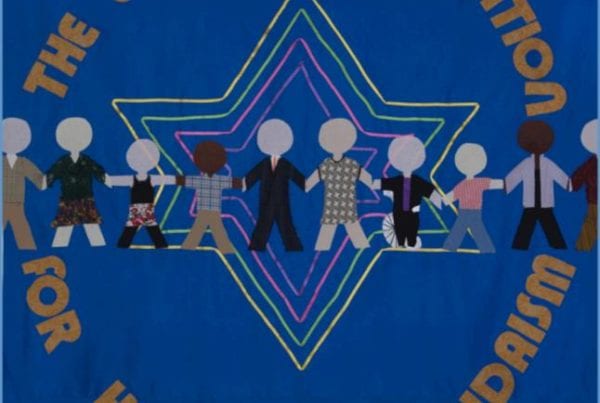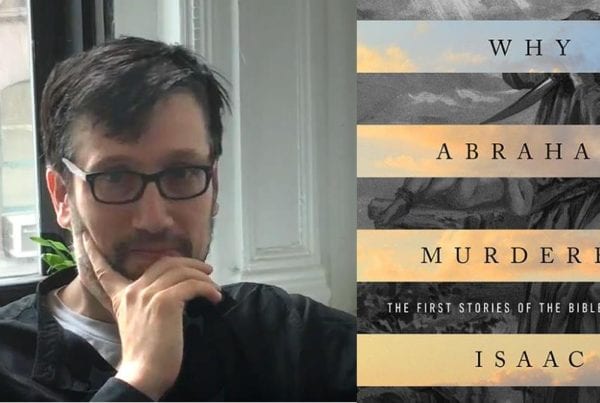Rosh Hashanah 2011
Rabbi Peter Schweitzer
For me the carefree days of my youth during the summer time were spent either in the Adirondacks or on Cape Cod. We hiked the trails in the mountains, swam in a chilly lake, had cookouts and campouts, and went to the same ice cream parlor every visit. Or we played in the frigid ocean, flew kites, looked for clams in the bay, dragged tons of sand into the house, and invariably went to the same lobster hut each year. Of course, little did I appreciate what the adults had to do to make these good times happen, but now that I am the adult, I truly understand what it means not just to take care of kids – not just on vacation but throughout the year – but also tend to aging and informed parents as well as the mutual needs of a partner. How often do we wish for the return of that childhood innocence where there are no worries greater than stubbing a toe and getting bitten by a summer mosquito.
This past June we got away for a quick break to a beautiful beach in South Carolina that is protected by a barrier reef. We’ve been going there off and off for the last ten years. If you’re willing to put up with the local politics, you’re in for a great time. The weekly oyster roasts are something to behold and most important, who knew the ocean could be so warm?
I stood in the surf for an hour at a time and could easily have stayed longer. It was a joyful experience and it brought back feelings of childhood. Yet at the same time that I was mesmerized by the beautiful waves I was also aware of the ocean’s power and strength that easily was able to knock me over. And it reminded me how furious nature can be and how deadly. It was hard to negotiate these opposing feelings. How could I indulge in unrestrained pleasure from the ocean when I also knew that a horrific earthquake had triggered a devastating tsunami in Japan earlier this year, or that after weeks of record rainfall the Mississippi River would swell to inconceivable magnitude and then flood thousands of square miles in the region.
And who knew that Hurricane Irene would be on its way two months later? Relatively speaking, it left New York City basically unscathed while it brought a trail of destruction, flooding and untold hardship to millions from North Carolina to Maine and particularly heartbreaking catastrophe to towns in the Catskills and Vermont? In its aftermath it was hard to balance pictures of happy New Yorkers going out to greet the sunshine and North Carolinean residents and visitors heading back for the beaches on the Outer Banks while others were coping with the basic challenges of getting their lives back together and, in too many cases, tragic loss.
I am reminded that on Passover we say that our celebration is saddened on account of the Egyptians who were drowned chasing the Hebrews into the Red Sea. And so we take a drop of wine out of our cups to diminish our pleasure in light of the tragedy that the Egyptians experienced. How do we maintain this perspective everyday and not just on Passover?
For our trip to South Carolina I brought along some “light” reading – several short paperback novels supposedly aimed at pre-teens to teach them about the Holocaust. It is a chronic pedagogical challenge to know how to teach about this horrendous chapter in Jewish and world history without on the one hand, traumatizing children or, on the other, sweeping all the terrible facts under the rug.
One of the books focused on a girl, in the innocence of her youth, who was fortunate to be sent to England where she lived out the war in relative safety and pleasure. Yet, she too, could not indulge in unbridled joy knowing that her family was endangered. When, in the end, she gets good and bad news – her brother survived, but her parents died in Auschwitz, she is devastated. So was I.
The other book followed a young girl who went into hiding in Holland. She survives with her sister and her parents, but then the letters start to arrive one after the other that say “Presumed dead in Sobibor” or “Presumed dead in Mauthausen”. The letters are hidden away from Rachel, but she discovers them on her own. She is startled and does not know how to manage this information.
“These days,” we read, “Rachel no longer knows whether a person is alive or dead. Each time that people…get together, she hears: ‘Is he still around? Is she still around?’ All too often the answer is “no.” That is the reason Rachel never dares to ask about anyone. Sooner or later she learns about the person in question, anyway.”
“That old Jopie was a funny man,” Grandpa says in the evening, “Given the chance he would always be teasing someone.”
“Is he still around?”
“No.”
“Aunt Mietje could sing beautifully. She was in a choir.”
“Is she still around?”
“No.”
The accumulation of loss is staggering. The sadness is overwhelming. I can’t imagine what it was like to have experienced these situations in real life. I am not sure how comfortable I am sharing this material with kids. Rachel wishes they “wouldn’t start talking about people again. Then maybe they would keep telling jokes the whole evening.”
Ten years ago, following 9/11, we were confronted by a different kind of question. “Has anybody seen this person?” “Did anybody survive at all?”
Even if we didn’t personally know people who died, we were all family members, one collective family. We all became mourners. Over and over we saw on television the buildings crumbling. If only they would stop showing this terrible footage and show something else.
Ten years later, laughter comes easily again, but now we have another terrible fact of history to explain in a way that doesn’t traumatize a new generation but also doesn’t hide from them the dangers and roughness of life.
How do we acknowledge that bad things can happen by the forces of nature and also by the hand of humans? How do we explain this not just to children, but to ourselves?
By being realists, we must teach these lessons, but by being realists, we must teach that this is only half of the lesson. Nature can also be a force for good. Humans can also do wondrously good things. While nature might not be contained, we can strive to shape our own actions for the better. We can prepare for the worst and we can provide assistance and help each other out when times are tough.
And so we were overjoyed, that same week of our vacation, to witness amazing good work being done when the New York State senate took the bold step to legalize same-sex marriage. Despite all the pain and prejudice over the years, and all the work still to be done, this was a momentous step in the right direction.
Barely a week passed and I received a call from two men who were eager to get married. They had only been waiting for 38 years. We celebrated their wonderfully joyful wedding ceremony a week ago. Good things can happen.
And so we are here at Rosh Hashanah, a day for rededication. Let this be a day to find and affirm our better selves. Let it be a day for commitment to deeds of goodness, kindness, and justice. And let it be a day to remind ourselves to be grateful for the gifts of life and cherished loved ones – gifts that are precious yet tenuous and never to be taken for granted.
Shana Tova. Happy New Year.


